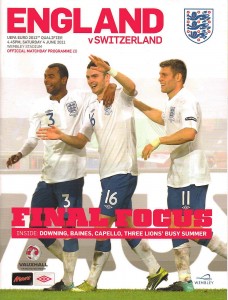UEFA 2020 Euro Championship – Day 10
 Group F: Hungary (1) 1 – 1 (0) France
Group F: Hungary (1) 1 – 1 (0) France
Goal-scorers: Hungary – Fiola (45’+2’). France – Griezmann (66′)
Puskas Arena, Budapest
This has been to date a tournament very low on shock results, but there was a sniff of one in Budapest when Hungary, who got hit with three late goals against Portugal, had World Champions France trailing at the break. The goal came in time added-on at the end of the half and was a quality one which was wildly celebrated by the full-house at the Puskas Arena. Fiola headed the ball into the path of Sallai, who returned it in a one-two which allowed Fiola to beat Pavard and Varane before finishing past Lloris. As for most of the Portugal game, Hungary were resolute, but their resistance was broken on sixty-six minutes. It was a goal that was more direct that those with the usual flair associated with Les Bleus, as Mbappe ran onto Lloris’ long kick down field playing in Griezmann who scored from just outside the six-yard box. Did France deserve to win this one? They had more possession and more shots, but that would have cruel on Hungary who for their battling qualities deserved a point.
 Group F: Portugal (0) 2 – 4 (0) Germany
Group F: Portugal (0) 2 – 4 (0) Germany
Goal-scorer: Portugal – Ronaldo (15′), Jota (67′). Germany – Rúben Dias (35’og), Guerreiro (39′ og), Havertz (51′), Gosens (60′)
Allianz Arena, Munich
What was I thinking? How could I doubt that Germany would lose this game and be on the edge of elimination from the competition? Well the first fifteen minutes made very interesting watching. Germany were out of the blocks and on fire and had a goal disallowed after a VAR review for offside. They then got caught on the break with Ronaldo tapping home from close range and from nowhere they were behind, and you began to wonder if this was not going to be Germany’s day. From there on in though it was all about Die Mannschaft as Portugal retreated and Germany poured forward. Then in the space of four minutes the game was turned on its head and in the process a record was created. On thirty-five minutes Portugal’s Rúben Dias shinned Gosens’ cross into his own net and four minutes later Guerreiro did the same as Kimmich cut the ball back into the Portugal six-yard box. The record created by this bizarre passage of play was that it was the first time at the European Championship Finals that two own-goals had been scored in a game. In fact, Euro2020 had produced more OG’s than previous tournaments. Into the second-half and it was more of the same from Germany, with Havertz making it 3-1 six minutes after the restart with a simple finish from Gosens cross. The provider turned goal-scorer on the hour mar, as he headed home Kimmich’s cross to make it 4-1 and you wondered if another 7-1 demolition (as over Brazil in the World Cup) was on the cards. It wasn’t to be as Portugal got what turned out to be a consolation from Jota on sixty-sevens minutes, giving the score a closeness that didn’t reflect Germany’s dominance. Write-off the Germans at your peril.
 Group E: Spain (1) 1 – 1 (0) Poland
Group E: Spain (1) 1 – 1 (0) Poland
Goal-scorers: Spain – Morata (25′) Poland – Lewandowski (54′)
La Cartuja, Seville
After another game where Spain dominated possession but only came away with a draw, many in the media seem to have hit the panic button as far as Luis Enrique’s side is concerned. We should though cast our minds back to 2016 in which Portugal only made it through to the knockout phase after three draws, before going on to lift the trophy. Yet the Spanish are not creating a great deal from all their ball retention, but you have to be ‘in it to win’ it and Spain will fancy their chances of progression as they face Slovakia in their final game. It all looked good on twenty-five minutes when Alvaro Morata scored from close range but only after a VAR review to send the Spaniards in at the break with a goal advantage. Poland though kept plugging away and with a talent such as Lewandowski in their side, he is always a threat. And so it proved nine minutes into the second-half as he rose to head home and level it at 1-1. That joy though looked to be short-lived as just four minutes later Spain were awarded a penalty. The Villarreal striker Moreno stepped up but put his spot-kick against the post with Morata unable to convert the rebound. As with the France v Hungary encounter did the ‘big’ side warrant a win based on their dominance of the game? Some will argue yes, but the simple fact is it’s a game all about goals and the history books will show it finished 1-1.
Today we reach the stage where teams find out if they need to pack their bags and head for the exits or prepare for the knockout phase as the last round of group games begin. Sensibly these days they kick-off at the same time so that no side has any advantage, or in the case of West Germany and Austria at the 1982 World Cup in Spain, allows any room for collusion. For older readers check out the Disgrace of Gijón – Wikipedia
Group A sees Wales travel to Rome and face Italy whilst the Swiss play Turkey in Baku. These final games are all about ‘ifs and buts’ For instance how do Italy approach the game having already qualified? Do they rest players or simply continue to build momentum with the same side? Do Wales look to play for a point?
The permutations are as follows, so you’ll need to read carefully!
- if Wales draw with Italy they will finish second and play in their last 16 match in Amsterdam against Group B’s runners-up.
- If they lose, Wales could still finish second. However, if they lose and Switzerland beat Turkey with a big enough change in goal difference the Welsh could finish third. However, four points would still almost certainly be enough to see them through to the last 16 as one of the tournament’s four best third-placed teams.
- If Wales win they would win the group and play their next game at Wembley against Group C’s runners-up.
- Both Switzerland and Turkey need to win their final Group A game to have any chance of reaching the last 16.
- If Switzerland win Swiss they would need Wales to lose to Italy, with a swing of five on goal difference, to have any chance of finishing second. Four points might be enough with four third-placed teams going through.
- If Turkey win they would have to hope that their three points were better than two the other third-placed teams. However, with their current goal difference of -5, it is likely they would need a big win over the Swiss for them to progress.
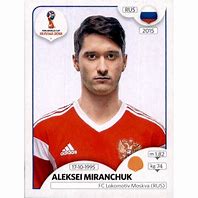 Group B: Finland (0) 0 – 1 (1) Russia
Group B: Finland (0) 0 – 1 (1) Russia Group A: Turkey (0) 0 – 2 (0) Wales
Group A: Turkey (0) 0 – 2 (0) Wales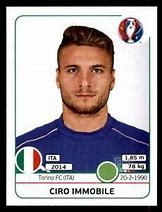 Group A: Italy (0) 0 – 3 (0) Switzerland
Group A: Italy (0) 0 – 3 (0) Switzerland Group E: Hungary (0) 0 – 3 (0) Portugal
Group E: Hungary (0) 0 – 3 (0) Portugal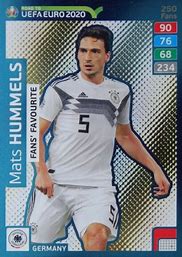 Group E: France (0) 1 – 0 (0) Germany
Group E: France (0) 1 – 0 (0) Germany Group A: Wales (0) 1 – 1 (0) Switzerland
Group A: Wales (0) 1 – 1 (0) Switzerland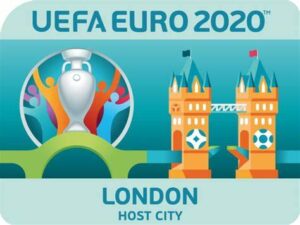 For whatever reason I just don’t have a good vibe for the Three Lions in this tournament, whether that be concerns over the defence and the associated injuries, or just that England won’t be able to back up the decent run in the last World Cup. Croatia who ended that dream back in 2018 lay in wait once again. These two have been regular opponents in recent years with England’s win in the Nations League in 2018 and World Cup Qualifiers in 2007 and 2008, balanced against the 2018 World Cup Semi-Final defeat and the two losses in the Euros Qualifiers in 2006 and 2007 (the later the infamous, ‘Wally with the brolly’ 3-2 defeat at Wembley). I’ll love to say I can see a comfortable win, but I’d take a point.
For whatever reason I just don’t have a good vibe for the Three Lions in this tournament, whether that be concerns over the defence and the associated injuries, or just that England won’t be able to back up the decent run in the last World Cup. Croatia who ended that dream back in 2018 lay in wait once again. These two have been regular opponents in recent years with England’s win in the Nations League in 2018 and World Cup Qualifiers in 2007 and 2008, balanced against the 2018 World Cup Semi-Final defeat and the two losses in the Euros Qualifiers in 2006 and 2007 (the later the infamous, ‘Wally with the brolly’ 3-2 defeat at Wembley). I’ll love to say I can see a comfortable win, but I’d take a point.
 In the modern age football feels like it is at saturation point in terms of coverage. Every detail about a player, manager or club is scrutinised to an infinite degree, so much so that nothing feels new, fresh or indeed inspiring.
In the modern age football feels like it is at saturation point in terms of coverage. Every detail about a player, manager or club is scrutinised to an infinite degree, so much so that nothing feels new, fresh or indeed inspiring.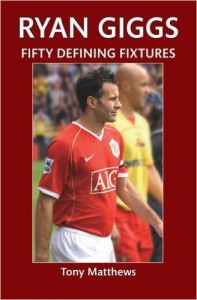 The latest footballing figure to feature in the Fifty Defining Fixtures series from Amberley Publishing is ex-Manchester United and Wales legend Ryan Giggs.
The latest footballing figure to feature in the Fifty Defining Fixtures series from Amberley Publishing is ex-Manchester United and Wales legend Ryan Giggs.
 Well the only positive thing to say is that England won the game. As with many others who have just witnessed the 90 minutes at Wembley, I am left with a feeling of disappointment and no little relief. The opening 30 minutes England had plenty of possession, but it was mostly in the defensive third of the field. When on the ball they looked ponderous, lacked movement and were without ideas or inspiration. Is it just me, but are James Milner, Gareth Barry or Stewart Downing really international class footballers? The ten minutes before half-time when Ashley Young scored offered some hope, when there appeared to at last be a vibrancy and purpose about their play. Indeed for the opening ten minutes of the second half, England took the game once again to Wales and I was hopeful that a second goal would follow. However, that was as good as it got for Capello’s team as they withered away in the remainder of the game. Wales took control and England were unable to retain any sort of possession. The Dragons were comfortably the better team in the second half and but for Rob Earnshaw missing what can only be described as a ‘sitter’, would have deservedly taken a point from this fixture.
Well the only positive thing to say is that England won the game. As with many others who have just witnessed the 90 minutes at Wembley, I am left with a feeling of disappointment and no little relief. The opening 30 minutes England had plenty of possession, but it was mostly in the defensive third of the field. When on the ball they looked ponderous, lacked movement and were without ideas or inspiration. Is it just me, but are James Milner, Gareth Barry or Stewart Downing really international class footballers? The ten minutes before half-time when Ashley Young scored offered some hope, when there appeared to at last be a vibrancy and purpose about their play. Indeed for the opening ten minutes of the second half, England took the game once again to Wales and I was hopeful that a second goal would follow. However, that was as good as it got for Capello’s team as they withered away in the remainder of the game. Wales took control and England were unable to retain any sort of possession. The Dragons were comfortably the better team in the second half and but for Rob Earnshaw missing what can only be described as a ‘sitter’, would have deservedly taken a point from this fixture.